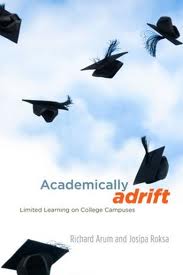 Giving up control, threats, punishment and “logical consequences” (a disguise for punishment) as methods to discipline your teen is NOT about settling for broken agreements and unkept promises. Rather, it opens the door for alternatives that can actually teach your teens to accept responsibility and achieve cooperation.
Giving up control, threats, punishment and “logical consequences” (a disguise for punishment) as methods to discipline your teen is NOT about settling for broken agreements and unkept promises. Rather, it opens the door for alternatives that can actually teach your teens to accept responsibility and achieve cooperation.
Are You Asking the Wrong Questions??
 Parents struggling with challenging adolescent behavior are often asking themselves (and their therapists) the wrong questions.
Parents struggling with challenging adolescent behavior are often asking themselves (and their therapists) the wrong questions.
They ask:
How do I make my teen listen to me?
How do I make my teen understand that “no” is “no”?
How do I get my teen to cooperate and do what I say?
How do I make my teen’s problematic behavior go away?
What would be an appropriate punishment or consequence for this particular behavior or situation?
Hope for Our Species
 Harvard evolutionary psychologist and linguist Steven Pinker has always been deeply curious about how humans work. In a series of best-selling books, he has argued that our mental faculties — from emotions to decision-making to visual cognition — were forged by natural selection.
Harvard evolutionary psychologist and linguist Steven Pinker has always been deeply curious about how humans work. In a series of best-selling books, he has argued that our mental faculties — from emotions to decision-making to visual cognition — were forged by natural selection.
In his newest book, The Better Angels of Our Nature, Pinker investigates one of the most primal apects of life: Violence. He argues that violence has fallen drastically over thousands of years — whether one considers homicide rates, war casualties as a percentage of national populations, or other measures.
Five Languages of Love
 Different people express love differently. They also tend to crave those same expressions of love from their partners, and often find themselves disappointed.
Different people express love differently. They also tend to crave those same expressions of love from their partners, and often find themselves disappointed.
In Dr. Chapman’s best-selling book, The Five Love Languages (over 7 million copies have been sold since it debuted in 1992), the now-73-year-old Southern Baptist pastor and author identifies five primary ways that we tend to express, and consequently interpret, love:
Love and Lies: Online Dating

The search for love is on…. online. In October of 2011, the major dating sites had more than than 593 million (!!) visits in the United States, according to the Internet tracking firm Experian Hitwise. Of the romantic partnerships formed in the United States between 2007 and 2009, 21 percent of heterosexual couples and 61 percent of same-sex couples met online, according to a study by Michael J. Rosenfeld, an associate professor of sociology at Stanford.
Good Enough Mom
 The term “good enough mother” appears frequently in the media these past few weeks. A new book entitled Good Enough is the New Perfect by B.B. Gillespie and H.S. Temple (Harlequin Press, 2011) offers a new way of looking at work/life issues and of finding success and happiness in modern motherhood.
The term “good enough mother” appears frequently in the media these past few weeks. A new book entitled Good Enough is the New Perfect by B.B. Gillespie and H.S. Temple (Harlequin Press, 2011) offers a new way of looking at work/life issues and of finding success and happiness in modern motherhood.
I thought it might be interesting to explore the origin of the term “good enough mother,” given its centrality in the lexicon of child psychology.
Ask Beth: Honest Advice for Teens

“How can a boy kiss a girl who wears braces?”
“I have enormous ears…. Is there an operation to whittle them down to size?”
“I am in terrible trouble and I don’t know where to turn. I’m 14 and I’m pregnant.”
“Should I sleep with my boyfriend?” (asked by a 10-year-old girl)
During the cultural upheaval of the 1960s and 70s, questions arose as never before about formerly forbidden topics such as sex. Thousands of teenagers and their parents, unable to find answers elsewhere, sent letters (first on paper and later by email) to Elizabeth Winship’s “Ask Beth” column in The Boston Globe, seeking her frank, detailed, sympathetic, and often witty advice on how to deal with delicate topics.
Thinking About College
 College tuition rates are soaring. More and more students go to college every year, and a bachelor’s degree is now required for entry into a growing number of professions. After all the efforts invested by parents and high school seniors to find the “perfect” college and after the tens of thousands of dollars invested in attending that college, are undergraduates really learning anything at all? For a large proportion of students, Richard Arum and Josipa Roksa’s answer to that question is a definitive “no.”
College tuition rates are soaring. More and more students go to college every year, and a bachelor’s degree is now required for entry into a growing number of professions. After all the efforts invested by parents and high school seniors to find the “perfect” college and after the tens of thousands of dollars invested in attending that college, are undergraduates really learning anything at all? For a large proportion of students, Richard Arum and Josipa Roksa’s answer to that question is a definitive “no.”